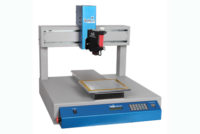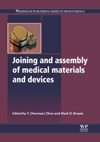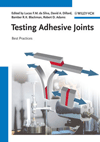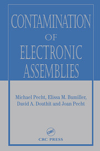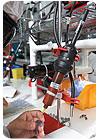
Specialized Health Products Inc. (SHPI) of Bountiful, UT, manufactures medical safety needles that minimize the threat of needle sticks to healthcare workers. The company both licenses its proprietary technology to other manufactures and produces safety needles for sale under its own and other company’s brands. In either case, product quality and reliability are central to the company’s business model.
Despite tight production schedules and high shipping volumes, the possibility of a defective product being delivered to a customer is simply unacceptable.
One of SHPI’s partners, contract manufacturer Integra Biotechnical LLC, operates a plant in Tijuana, Mexico, which produces some 5 million safety needles annually, using eight assembly lines that were designed and are currently operated by SHPI. Each line is comprised of both manual and automated workcells, including a manual station where operators secure a stainless steel needle and tubing in a plastic housing using a small quantity of adhesive from Henkel Corp.
Dispensing the adhesive for this procedure was a challenge because of the precise amount of material involved. The adhesive volumes were small, and precision in adhesive dispensing was vital to the performance of our products. The company evaluated a hydraulic positive-displacement system, but it was not repeatable enough for the application. In addition, leaking occurred in the hydraulic line between the drive motor in the controller and the dispensing gun, resulting in a loss of precision in dispensing.
Ultimately, the company went with an LDS9000 dispenser from Fishman Corp. In contrast to systems using hydraulics or compressed air, each LDS9000 is equipped with a linear actuator connected via a flexible electrical cable to a microprocessor control. Together, the actuator and controller provide a highly controllable positive-displacement force on a piston.
The control unit works by calculating the exact movement necessary to dispense the required amount of material, based on variables such as syringe size and the amount of material being used. Neither the viscosity of the material nor the amount of material in the syringe has any impact on dispense volume.
The dispenser can be handheld, mounted in a benchtop stand or ganged in fixtures and integrated into fully automated systems. After each dot of adhesive is dispensed, a programmable pullback of the piston prevents fluid ooze. In the Integra Biotechnical plant, the dispensers are fixtured and actuated with a foot switch. The result has been a dramatic improvement in dispensing control and product quality. In fact, SHPI is now using 20 of the LDS9000 dispensers at its Tijuana facility.
For more on dispensing, call 800-433-2115 or visit www.fishmancorp.com.
